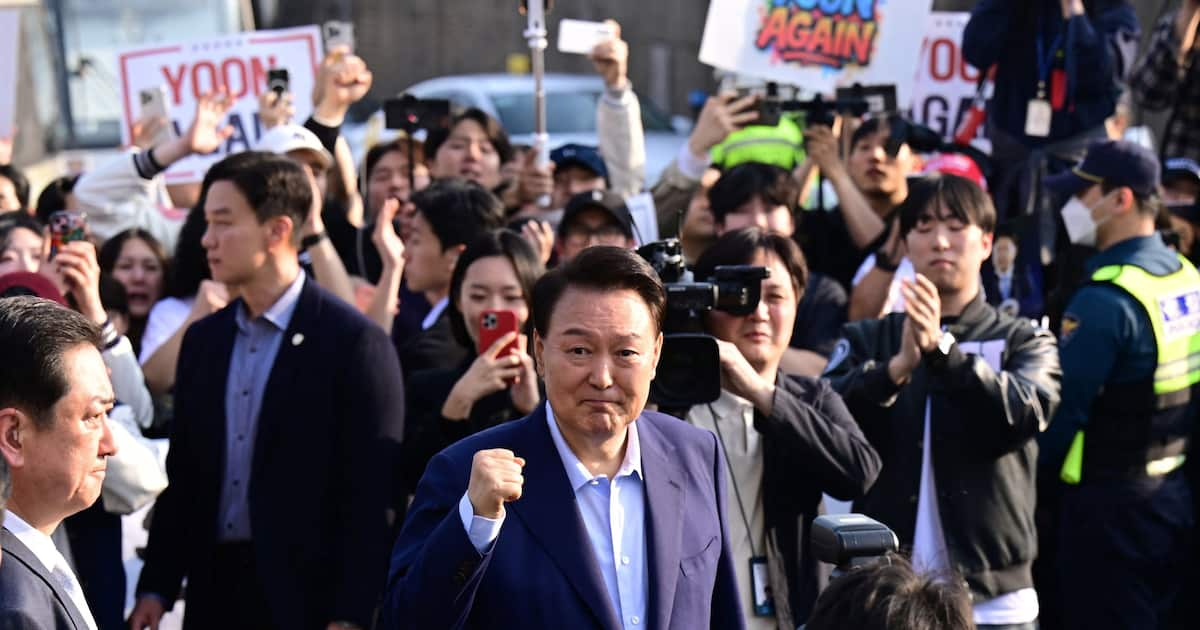South Korea's Conservatives: Yoon's Legacy and the Future of the Right
South Korea's political landscape has undergone a significant shift with the presidency of Yoon Suk-yeol. His time in office has been marked by both successes and controversies, leaving a complex legacy for the conservative party and shaping the future of the right in Korean politics. This article delves into the key aspects of Yoon's presidency, analyzing its impact and exploring the potential paths for South Korea's conservative movement.
Yoon Suk-yeol's Presidency: A Mixed Bag
Yoon's election victory in 2022 marked a return to conservative rule after the liberal Moon Jae-in administration. His campaign focused on strengthening national security, bolstering the economy, and reforming the judiciary. While he achieved some successes, his presidency was also fraught with challenges:
Foreign Policy and North Korea:
- Strengthened US Alliance: Yoon prioritized strengthening the alliance with the United States, leading to increased joint military exercises and closer cooperation on security issues in the face of North Korean threats. This alignment has been largely welcomed by conservatives.
- Strained Relations with China: Relations with China, however, have been more strained under Yoon's leadership, impacting economic and diplomatic ties. This aspect of his foreign policy has been a subject of ongoing debate within conservative ranks. Some argue for a more balanced approach, while others support the firmer stance on China.
- North Korean Provocations: The ongoing provocations from North Korea, including missile tests and nuclear advancements, have dominated the security agenda. Yoon's response has been firm but has not significantly altered the underlying geopolitical dynamics.
Domestic Policies and Economic Challenges:
- Economic Reforms: Yoon's administration implemented various economic reforms aimed at boosting growth and tackling inequality. However, the effectiveness of these reforms remains a subject of discussion, with differing opinions within the conservative party on their long-term impact. Key challenges include high inflation and youth unemployment.
- Controversies and Low Approval Ratings: Yoon's presidency has been marred by numerous controversies, leading to consistently low approval ratings. These controversies have negatively impacted public trust in the conservative party and damaged its image.
- Judicial Reform Efforts: Yoon's attempts at reforming the judiciary, a key campaign promise, have faced significant opposition, highlighting the deep divisions within Korean society on this issue. The effectiveness and long-term consequences of these reforms are yet to be seen.
The Future of South Korea's Conservatives
Yoon's legacy will undoubtedly shape the future trajectory of the conservative party. The challenges he faced, particularly in maintaining public approval and navigating complex geopolitical situations, will require careful consideration for future leaders.
Key Challenges for the Conservative Party:
- Rebuilding Public Trust: The conservative party needs to rebuild public trust damaged by controversies during Yoon's presidency. Transparency and accountability will be crucial to achieving this.
- Addressing Economic Concerns: Effectively addressing economic challenges like inflation and unemployment is paramount to attracting broader public support.
- Internal Unity: Internal unity within the conservative party is essential for presenting a cohesive and appealing alternative to the liberal opposition.
- Adapting to Changing Demographics: The conservative party needs to adapt its policies and messaging to appeal to a younger and more diverse electorate.
Potential Paths Forward:
- Focus on Economic Growth: A renewed focus on promoting economic growth and creating jobs could attract broader support.
- Strengthening Social Programs: Expanding social safety nets and addressing concerns about inequality could help bridge the divide with more progressive segments of society.
- Modernizing the Party Image: A more modern and inclusive image could help the conservative party connect with younger generations.
The future of South Korea's conservatives is uncertain. The success of the party in the years to come will depend on its ability to learn from the past, address the concerns of the electorate, and present a compelling vision for the future. Only time will tell whether the conservative movement can overcome the challenges it faces and regain its dominant position in Korean politics.
Further Reading: (Links to relevant news articles and academic studies can be added here)
Call to Action: What are your thoughts on the future of South Korea's conservative party? Share your opinions in the comments below!
